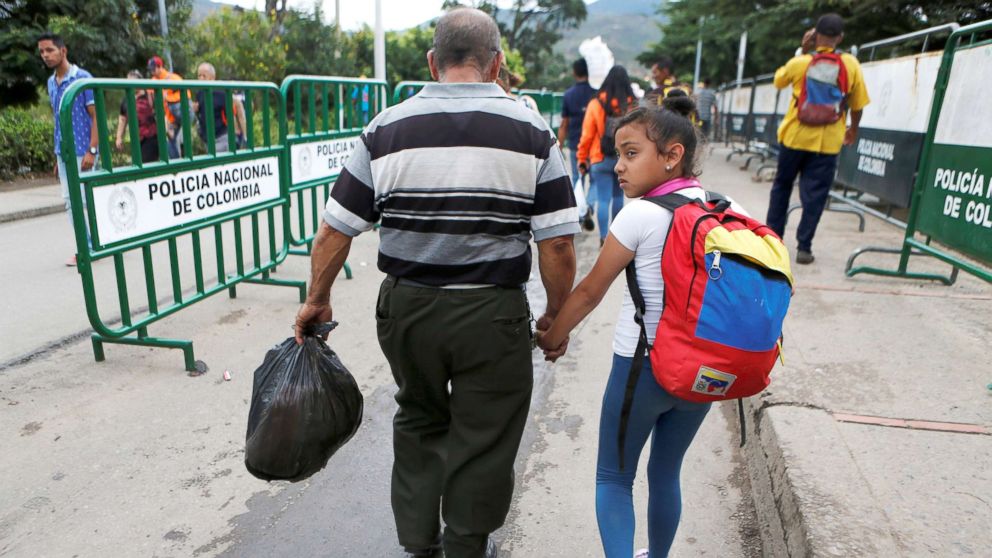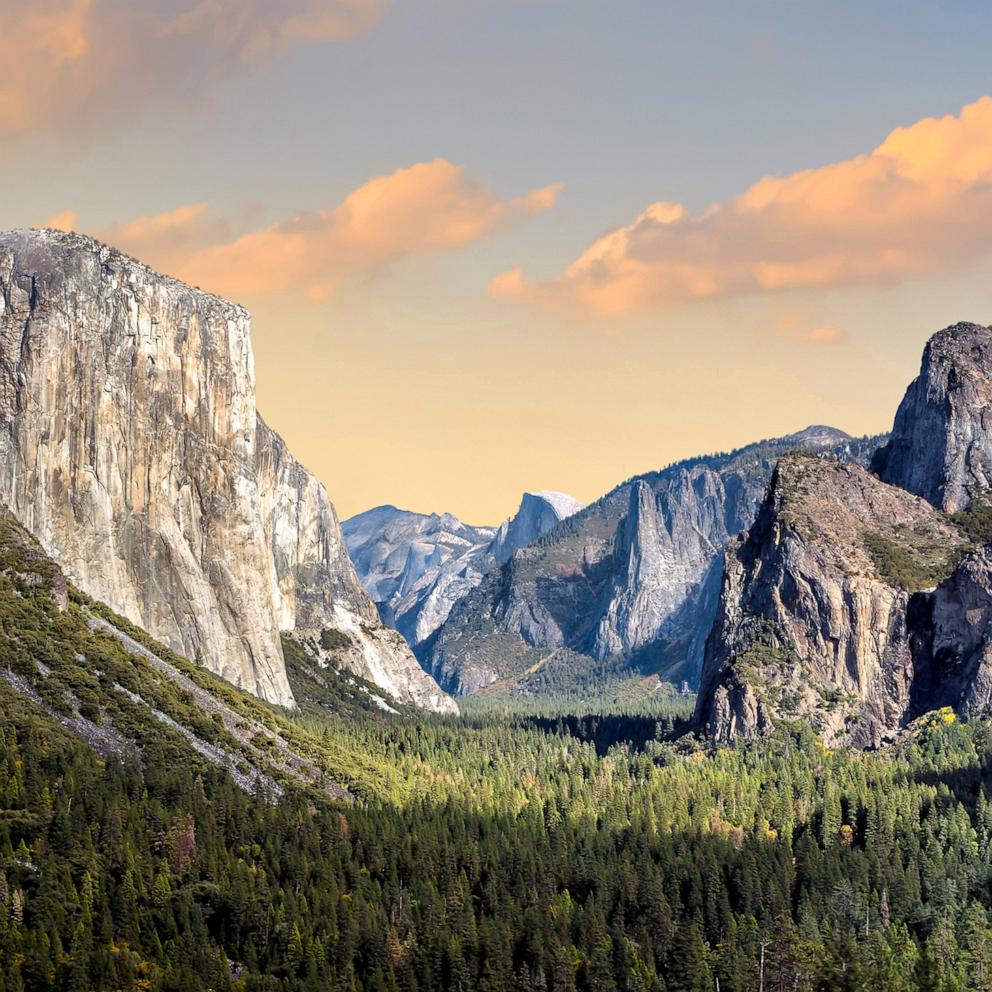As Venezuela crumbles, exodus reaches record level
When two full salaries, including her own as a lead nurse at a major hospital, weren't enough to get through one week in Venezuela, Karen Hurtado decided the time had come to leave her country for an uncertain -- but perhaps better -- future abroad.
The thought of leaving first came when eating meat became an increasingly rare luxury, and her full salary wasn't enough to cover her son's transportation to school.
"Our hands were tied," Hurtado told ABC News. "We were cashing in our paychecks, my husband and I, and we realized that that wasn't enough to survive even a week. Not even a week -- three days. It's hard."
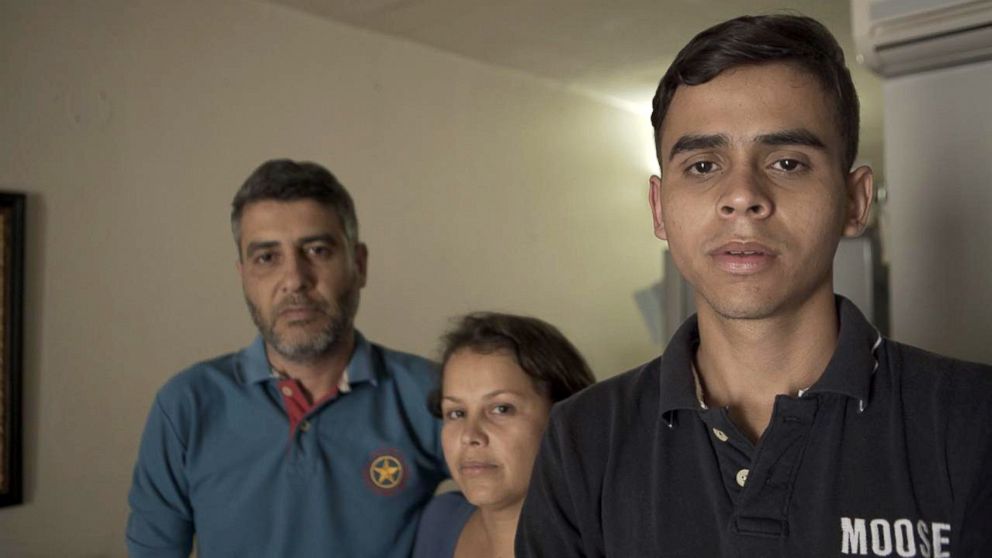
Around her, a growing sense of misery. Days-long blackouts, hardships in finding water and food, and an increasing number of diseases for which medicines were impossible to find had become daily predicaments in Venezuela.
It's a crisis U.S. Ambassador to the United Nations Nikki Haley blames on embattled Venezuelan President Nicolas Maduro.
"These are his people -- these are the people he should be feeding," Haley said during a recent visit to the Colombian border. "These are the people he should be giving medicine to. These are the people he should be giving jobs to and making sure that they have a good quality of life. But, instead, he is protecting himself."
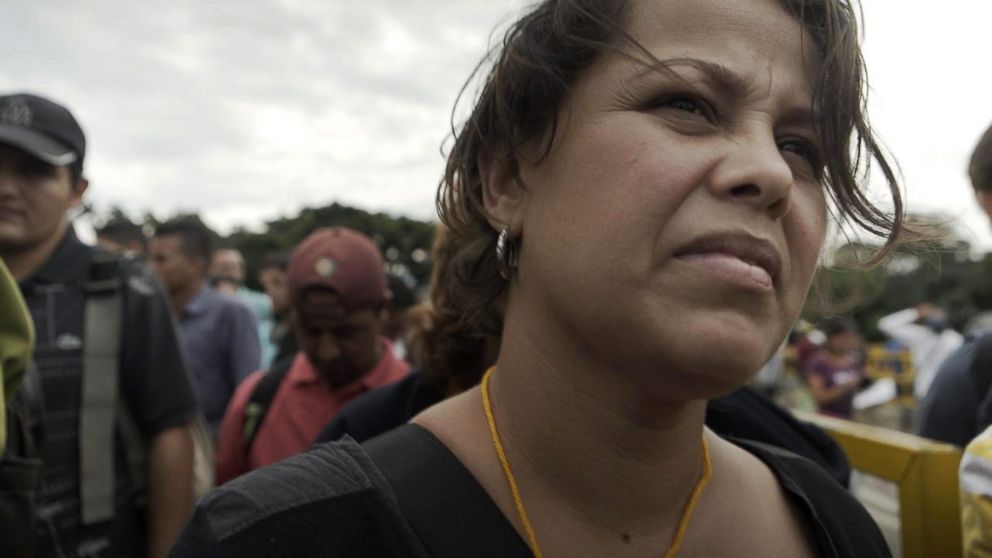
Hurtado knew the local currency, the bolivar, was worthless both at home and abroad, so she embarked on a months-long quest to get as many dollars as she could, saving just over $200 in small notes that she hoped would be enough to take her to Peru -- making several stops -- where a nurse friend already lived.
In April, she left her husband and son behind and took a 14-hour bus ride to the border, joining the thousands of Venezuelans crossing into the Colombian city of Cucuta, hoping to stay in the neighboring country or keep traveling -- by bus, car or on foot -- farther south.
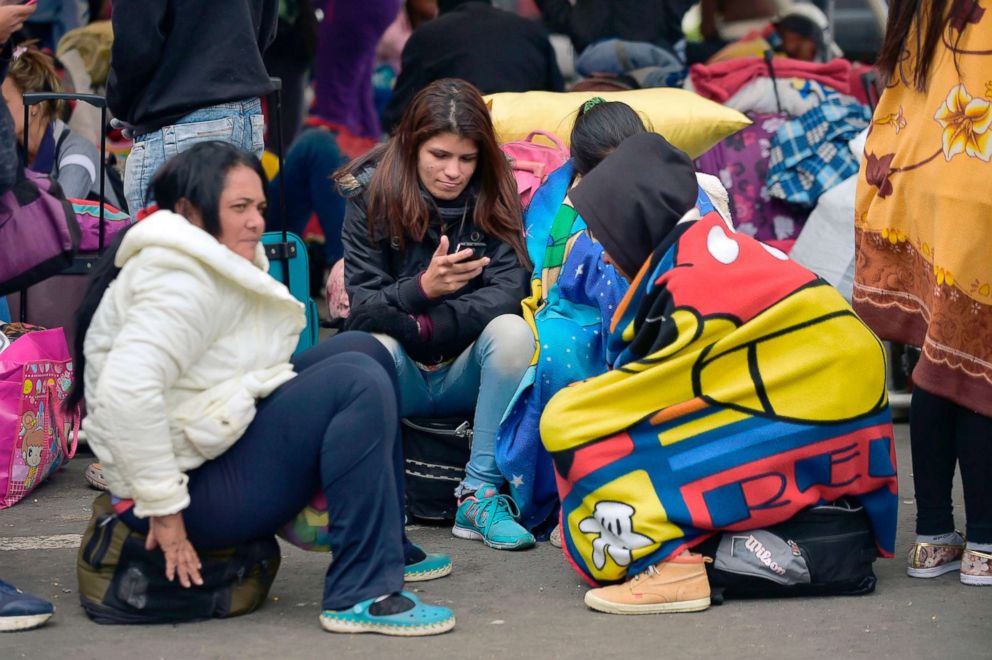
The travelers carried tales of precarious survival back home and the weariness of a long journey, many fleeing starvation, misery, persecution and violence -- a crush of humanity overwhelming border towns and highways across the subcontinent.
"It is the need, the extreme need. You have your kids dying of hunger," said Francesco Bortignon, who for decades has worked with migrants as part of the Scalabrinian International Migration Network in Cucuta. "They don't find food. There is no money. You don't find medicaments. So you simply die."
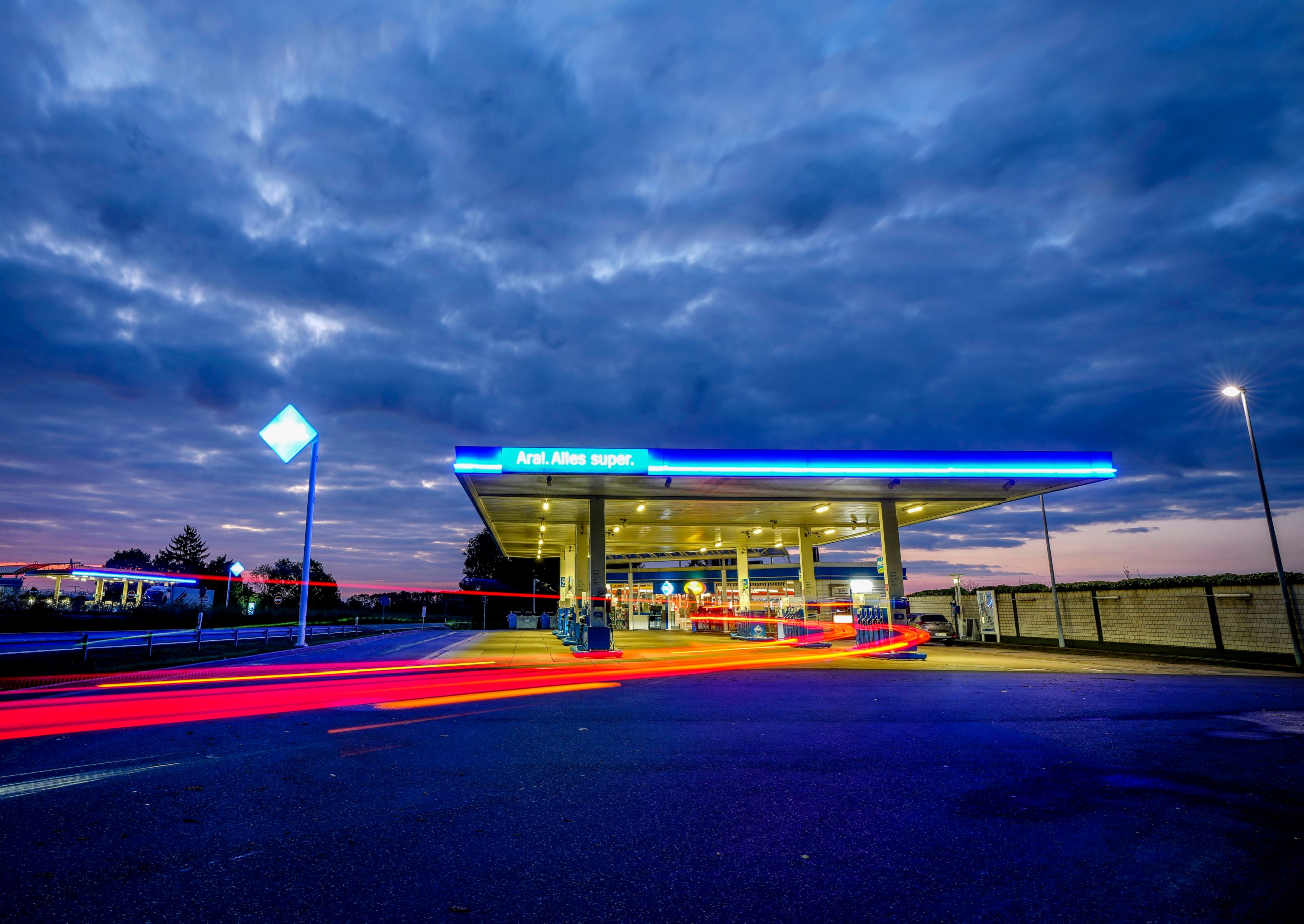
Hurtado is one of more than half a million Venezuelans who have made their way to Ecuador through Colombia this year alone -- and one of many who plans to continue onward to Peru or Argentina, according to a recent report from the United Nations.
This year, an average of between 2,700 and 3,000 men, women and children were crossing into the country each day. Just in the first week of August, some 30,000 Venezuelans entered Ecuador. That's more than 4,000 a day. About 20 percent of them stay there and the rest venture south.
This means 10 times more Venezuelans have entered Ecuador this year than North Africans have crossed the Mediterranean Sea to Europe.
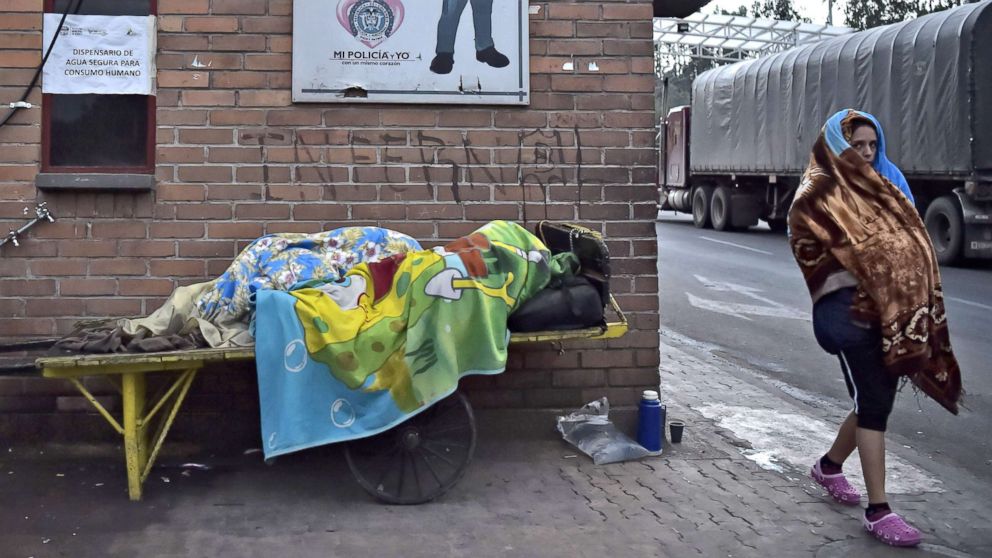
Across South America, there's been a 900 percent increase in Venezuelan migrants, up from 89,000 in 2015 to 900,000 in 2017, according to the U.N.
"The exodus of Venezuelans from the country is one of Latin America's largest mass-population movements in history," United Nations High Commissioner for Refugees' spokesman William Spindler said. "Many run out of resources to continue their journey, and left destitute are forced to live rough in public parks and resort to begging and other negative coping mechanism[s] in order to meet their daily needs."
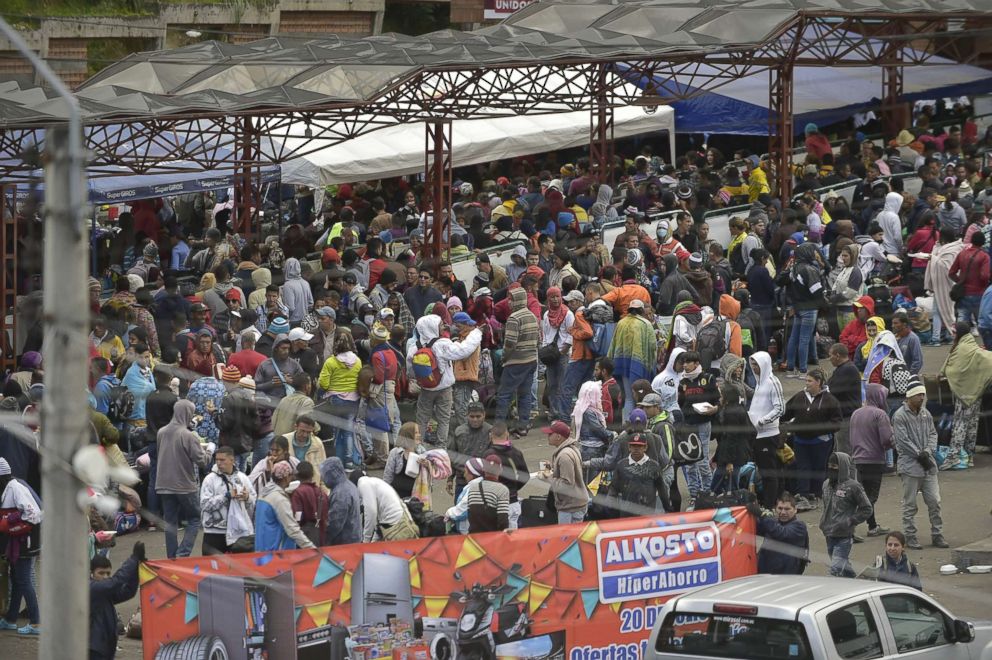
Worldwide, the number has risen from 700,000 to more than 1.6 million in the same period, the report says, with the number of Venezuelans seeking asylum in the U.S. having increased by 88 percent from 2016, according to U.S. Citizenship and Immigration Services.
So far this year, the number of Venezuelans who have applied for asylum in the U.S. is almost three times as great as any other nationality, according to USCIS data.
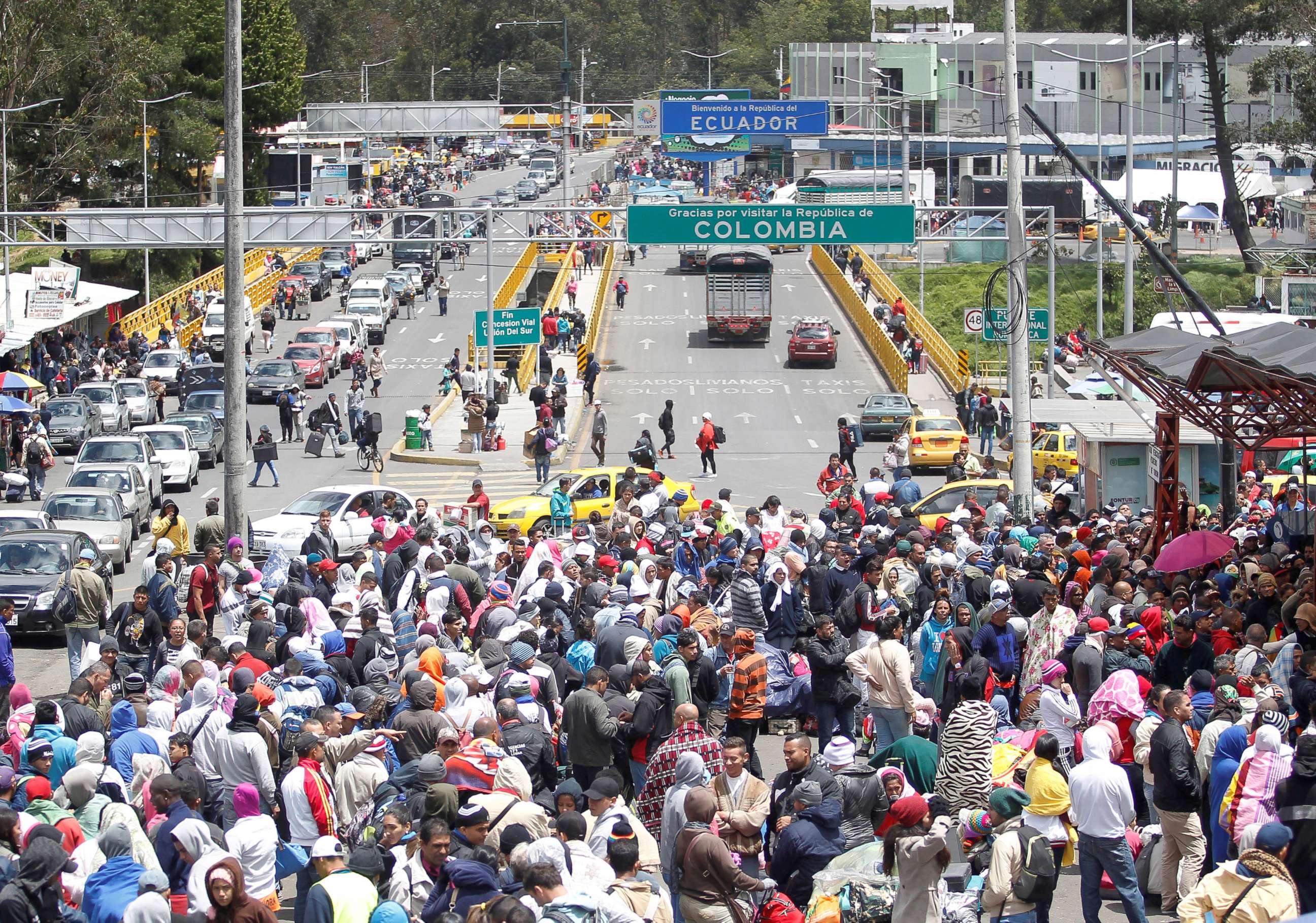
"We have all this hope in [Venezuela] and we don't want to go," Hurtado said. "And you're always thinking something is going to happen, something good is going to happen, but, so far, we have not gotten anything that can make us say that we want to stay. The last thing I want is to stay. ... It's just too difficult."
